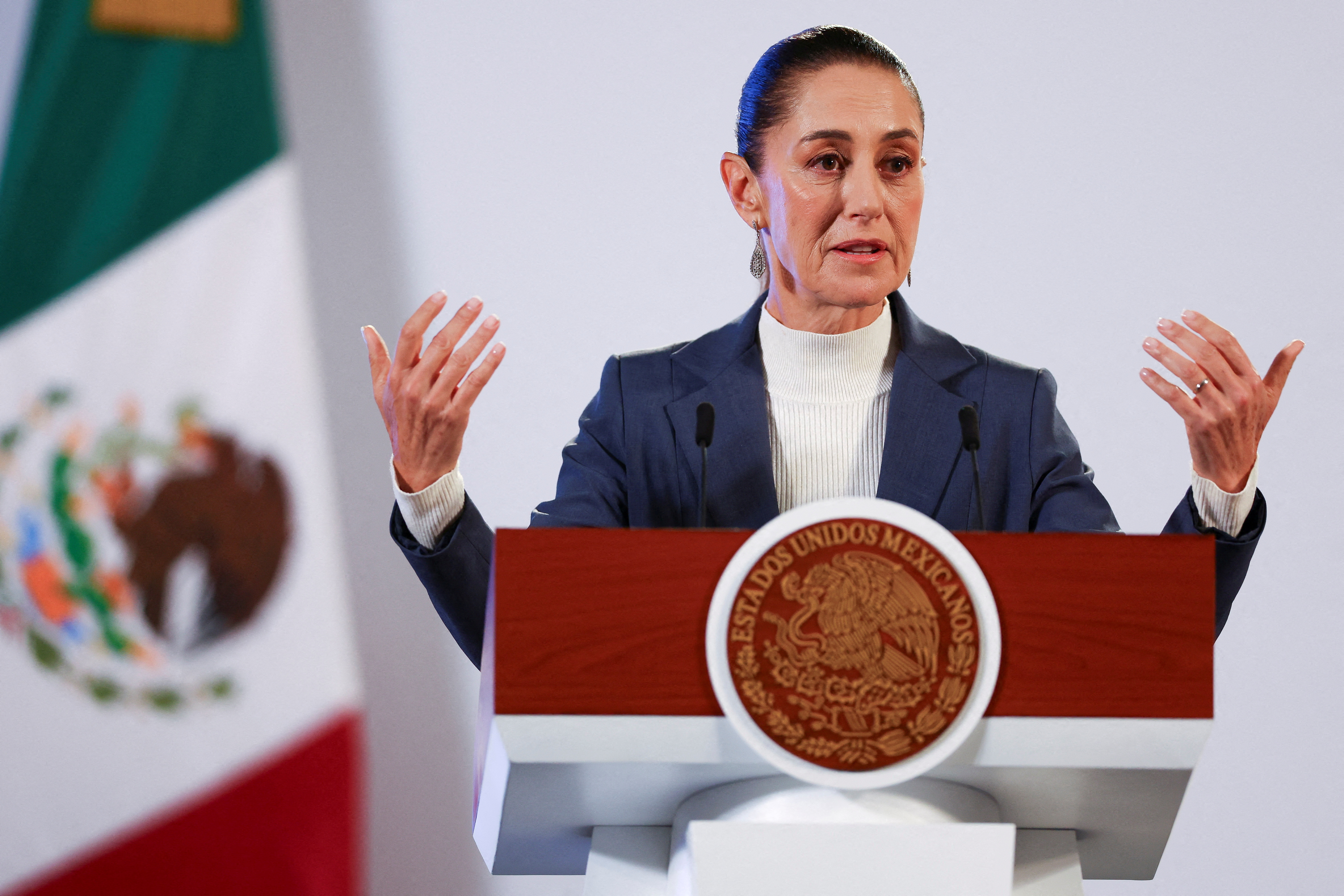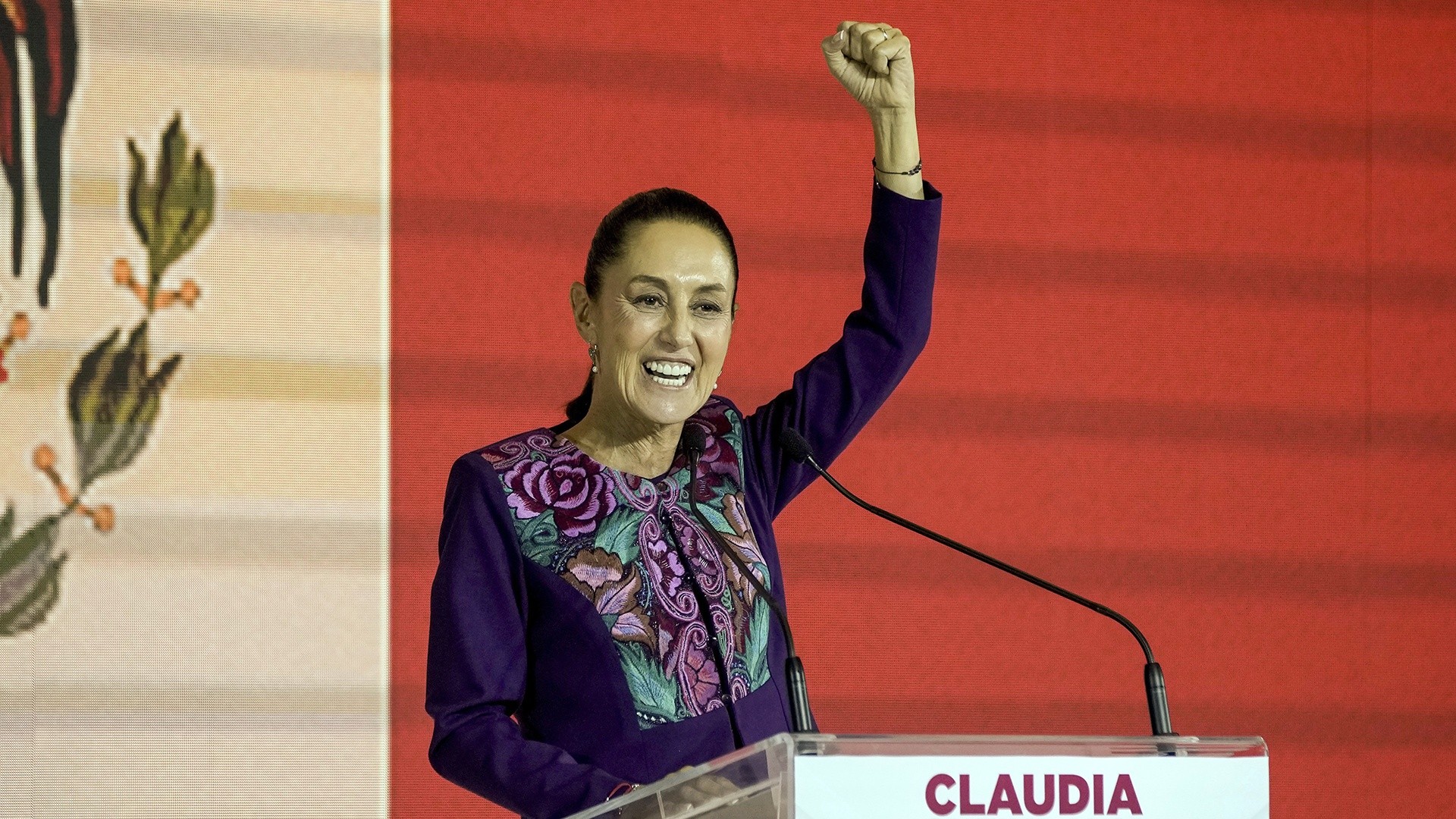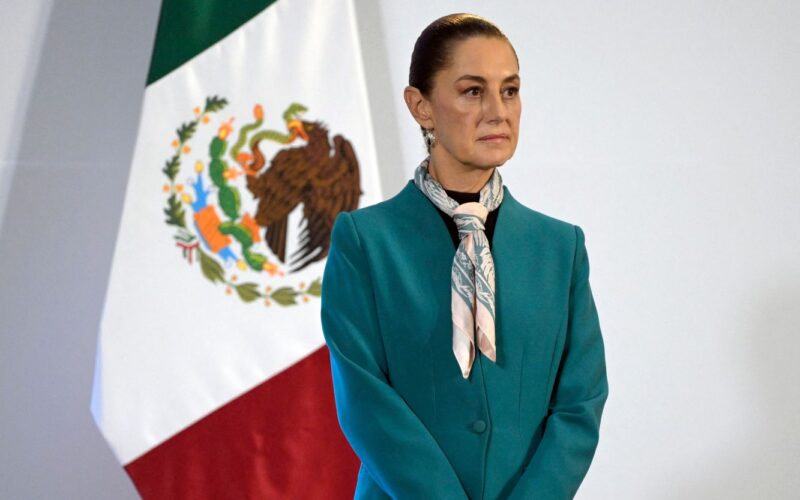Mexican President Warns Trump Tariffs Could Harm Jobs, Suggests Retaliatory Measures
The ongoing tensions between the United States and Mexico over trade policies have escalated once again. Mexican President Andrés Manuel López Obrador (AMLO) has issued a stark warning about the potential repercussions of former U.S. President Donald Trump’s proposed tariffs on Mexican goods. In a statement that highlights the deep interconnectedness of the two economies, AMLO underscored the potential harm to jobs on both sides of the border while suggesting that Mexico could implement retaliatory measures if such tariffs are imposed.
Background: A History of Tariff Disputes
The trade relationship between the U.S. and Mexico has long been complex, characterized by periods of cooperation and conflict. The North American Free Trade Agreement (NAFTA), replaced in 2020 by the United States-Mexico-Canada Agreement (USMCA), was designed to eliminate tariffs and promote trade. However, tensions resurfaced during Trump’s presidency when tariffs were used as leverage to address immigration and trade deficits.
Trump’s administration imposed steel and aluminum tariffs on Mexico in 2018 and later threatened tariffs on all Mexican imports unless Mexico took action to curb illegal immigration. While a temporary agreement was reached, the scars from those threats remain fresh. AMLO’s recent warning suggests Mexico is preparing for a similar scenario if Trump regains the presidency and revives his tariff strategy.
Economic Interdependence: Jobs at Stake
One of AMLO’s key arguments against the proposed tariffs is the profound economic interdependence between the U.S. and Mexico. According to data from the U.S. Census Bureau, Mexico is the United States’ largest trading partner, with bilateral trade totaling over $700 billion in 2022. Goods such as automobiles, electronics, agricultural products, and machinery dominate this trade.
Impact on Mexican Jobs
Mexico’s manufacturing sector is heavily reliant on exports to the U.S., particularly in industries like automotive and electronics. Tariffs would increase the cost of Mexican goods, making them less competitive in the U.S. market. This could lead to reduced production, layoffs, and economic instability in regions dependent on export-driven jobs. For instance:
- Automotive Industry: Mexico is a hub for vehicle assembly and parts manufacturing. A significant portion of these products is exported to the U.S. Tariffs could jeopardize thousands of jobs in cities like Monterrey and Guadalajara.
- Agriculture: Mexico’s farmers, who export avocados, tomatoes, and berries to the U.S., would face diminished demand due to higher prices, potentially forcing small-scale farmers out of business.
Impact on U.S. Jobs
The interconnected supply chains mean that tariffs would not only hurt Mexican industries but also U.S. businesses relying on Mexican imports. Key sectors that could suffer include:
- Automobile Manufacturing: U.S. automakers depend on Mexican parts to keep production costs low. Tariffs would disrupt supply chains, increase production costs, and potentially lead to job cuts.
- Retail and Agriculture: U.S. retailers and food industries rely on affordable Mexican imports to meet consumer demand. Tariffs could lead to higher prices, reduced sales, and economic strain for American businesses.
Political Context: AMLO’s Position and Strategy
AMLO’s warning comes against the backdrop of Mexico’s growing assertiveness in its foreign policy. Known for his nationalistic approach, AMLO has repeatedly emphasized Mexico’s sovereignty and economic self-sufficiency. While he has generally avoided direct confrontation with the U.S., he has also demonstrated a willingness to push back when Mexico’s interests are threatened.
The USMCA as a Framework
AMLO pointed to the USMCA as a crucial framework for resolving trade disputes, arguing that Trump’s proposed tariffs would violate its terms. The agreement includes mechanisms for arbitration and conflict resolution, which AMLO suggested Mexico could utilize if necessary.
Retaliatory Measures: A Preview
While specifics were not disclosed, AMLO hinted at potential retaliatory measures. Historically, Mexico has responded to U.S. tariffs with targeted measures, such as imposing duties on agricultural products from key Republican states. This strategy is designed to create political pressure on U.S. leaders by impacting constituencies critical to their electoral success.
Possible retaliatory actions could include:
- Agricultural Tariffs: Imposing duties on U.S. corn, soybeans, and meat exports, which would hurt American farmers.
- Industrial Products: Targeting U.S.-made machinery and equipment, disrupting trade flows.
- Diversifying Trade Partners: Strengthening economic ties with other nations to reduce dependence on the U.S.

Trump’s Perspective: America First
Trump’s tariff proposals align with his “America First” doctrine, which prioritizes domestic industries and seeks to reduce trade deficits. Proponents argue that tariffs would encourage companies to relocate production to the U.S., creating American jobs. Critics, however, contend that this approach overlooks the complexities of global supply chains and risks sparking trade wars that could backfire on the U.S. economy.
Economic Analysis: Winners and Losers
Economists warn that the reintroduction of tariffs could have far-reaching consequences. A study by the Peterson Institute for International Economics found that tariffs on Mexican goods would likely lead to higher consumer prices in the U.S., reduced trade volumes, and retaliatory actions that could harm American exporters.
Consumer Impact
American consumers would face higher prices for goods such as cars, electronics, and produce. For example, a tariff on Mexican avocados could significantly increase their cost, affecting millions of households.
Long-Term Implications
Beyond immediate economic disruptions, tariffs could strain the U.S.-Mexico relationship and undermine regional cooperation. Businesses might seek alternative suppliers in Asia or Europe, weakening North America’s economic integration.

Conclusion: A Call for Diplomacy
AMLO’s warning serves as a reminder of the intricate economic ties between the U.S. and Mexico. The potential for tariffs to harm jobs and disrupt industries highlights the need for careful diplomacy. As Trump’s proposed policies loom large, both nations must navigate these challenges to preserve the mutual benefits of their trade relationship.
Instead of escalating tensions, AMLO called for dialogue and collaboration. He emphasized that resolving disputes through the USMCA framework and fostering economic cooperation would be more beneficial than resorting to punitive measures. The coming months will test the resilience of U.S.-Mexico relations and the ability of leaders to prioritize long-term economic stability over short-term political gains.











